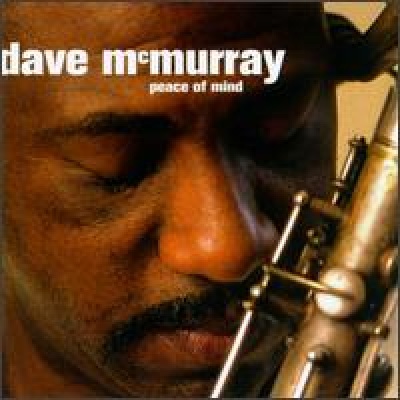
Peace of Mind
by Michael G. NastosDetroit saxophonist McMurray, who might be remembered in the '80s as one of the finest avant expressionists in his heyday with Griot Galaxy, follows the same smooth jazz path as on his previous Warner Brothers release The David McMurray Show. This CD is not as hard edged, it's actually much, much cooler, the majority being instrumental numbers that have a similar small funk flavor, McMurray playing alto, tenor and soprano sax, and a smidgen of flute. He's backed on many of the tracks by electric bass guitarist Darrell Smith, guitarist Wayne Girard, no drummer, but percussionist Dennis Sheridan. Most of the rhythm seems to come from programmed keyboards. Cameos are from pianist Bob James, Don & David Was, guitarist Al Martin and singer Sweet Pea Atkinson. Since many of the tempos are slow to mid-speed, there's not much to distinguish one from another, save McMurray's cut-below David Sanborn musings on different saxes. The vocal tracks "For You" (plus remix, ) and "Let It Go" have Donald Ray Mitchell & Herschell Boone sounding like Stevie Wonder, while three Ridgeway family vocalists (Esther, Gloria & Gracie) on Prince's "How Come U Don't Call Me Anymore?" sing only the refrain. Musical highlights include Rayse Biggs' Miles-like trumpet on the title track, Bob James Fender Rhodes solo during "My Brother & Me" and acoustic romp with guitarist Mark Whitfield for "Gar Z." The most interesting number is "Chow Main Street," its churning percission and meditative underpinnings quite reminiscent of Leon Thomas & Pharoah Sanders' "Hum Allah (Prince Of Peace.)" All in all a recording typical of this genre made by skilled musicians who only scratch the surface of their already established abilities and talents. McMurray is a quite engaging saxophonist in search of a more substantive backdrop, and a better record deal.
